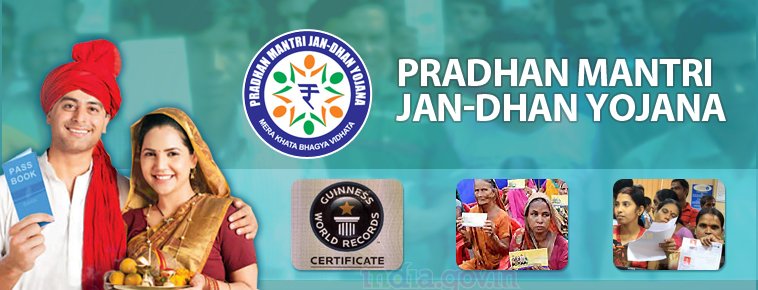Explore the various schemes for women empowerment in India that are acting as catalysts for change. This blog delves into government initiatives, non-profit programs, and grassroots movements aimed at uplifting women across the nation. Learn about schemes like Beti Bachao Beti Padhao, Mahila E-Haat, and Pradhan Mantri Ujjwala Yojana, which focus on education, entrepreneurship, healthcare, and financial independence. Discover how these programs are breaking barriers, fostering equality, and transforming the lives of millions of women in India. Gain insights into the successes and challenges of implementing these schemes and the impact they have on society. Join us in understanding how empowering women can lead to a more inclusive and progressive India.
In a nation where cultural diversity is as rich as its history, India is undergoing a transformative journey toward women’s empowerment. The driving force behind this shift lies in the implementation of schemes explicitly designed to uplift and empower women across various facets of life. These initiatives serve as catalysts for change, addressing systemic challenges and fostering an environment where women can thrive. Here, we delve into some of the pivotal schemes that stand as beacon of empowerment in the Indian context.
Table of Contents
Introduction: Schemes for Women Empowerment in India
Women empowerment, a term resonating with the aspirations of a progressive society, holds immense significance in the Indian context. Defined as the process of granting women authority and power to participate and make informed decisions, it transcends rhetoric. India, with its diverse population and unique challenges, is witnessing a paradigm shift in societal attitudes towards women’s empowerment. The catalysts for this transformation are the various schemes implemented by the government to address gender disparities systematically.
“Schemes for Women Empowerment in India” play a pivotal role in bridging gaps and fostering an environment conducive to equal opportunities. Initiatives range from financial inclusion programs and skill development schemes to healthcare interventions, all aimed at enhancing the holistic empowerment of women. By focusing on education, employment, and health, these schemes aim to create a comprehensive support system.

This blog explores the dynamic landscape of women’s empowerment in India, shedding light on the evolving roles, challenges, and successes. Through an examination of the government’s proactive measures, including schemes tailored for women, we delve into the transformative impact on individuals and society, illustrating how these initiatives contribute to reshaping the narrative of women’s empowerment in the Indian subcontinent.”
You may also like: Unleashing the Power: How Women Are Redefining Empowerment.
Beti Bachao Beti Padhao
Objectives of the Scheme
The 2015 launch of the flagship program Beti Bachao, Beti Padhao (Save the Girl Child, Educate the Girl Child) aims to address the declining child sex ratio and promote girls’ education. This initiative operates on a dual mandate: saving the girl child from gender-based discrimination and ensuring her access to quality education. By raising awareness and providing financial incentives, Beti Bachao, Beti Padhao seeks to challenge deeply ingrained gender biases from the earliest stages of life, setting the stage for a more equitable future.
Addressing Child Sex Ratio
One of the primary focuses of Beti Bachao, Beti Padhao, is to address the skewed child sex ratio prevalent in several parts of India. The preference for male children has resulted in a significant decline in the number of female children, leading to a demographic imbalance. The scheme aims to challenge this deeply ingrained gender bias from the earliest stages of life.
Promoting Girl Child Education
Educating the girl child is a cornerstone of women empowerment. Beti Bachao, Beti Padhao, provides financial incentives and raises awareness to encourage families to prioritize the education of their female children. By promoting girl child education, the scheme aims to break the cycle of gender-based discrimination and pave the way for a more equitable future.
Pradhan Mantri Matru Vandana Yojana (PMMVY)
Supporting Maternal Well-being
The Pradhan Mantri Matru Vandana Yojana (PMMVY), launched in 2017, is a maternity benefit program designed to support pregnant and lactating women. This scheme recognizes the importance of maternal well-being not only for the mother but also for the health of the child. By providing financial assistance to compensate for wage loss during childbirth and promoting better health and nutrition, PMMVY contributes to a healthier start for both the mother and the child. This initiative underscores the crucial role women play in shaping the well-being of future generations.
Financial Assistance for Pregnant Women
PMMVY focuses on providing financial aid to pregnant and lactating women, acknowledging the challenges they face in terms of healthcare expenses and wage loss during maternity leave. By offering direct financial support, the scheme contributes to reducing economic vulnerabilities and ensuring a healthier start for both the mother and the child.
Focus on Health and Nutrition
Beyond financial assistance, PMMVY emphasizes the significance of health and nutrition during pregnancy. The scheme encourages women to prioritize their well-being and that of their unborn child by promoting access to essential healthcare services and nutritional support. This holistic approach addresses the broader aspects of maternal and child health.
Pradhan Mantri Jan Dhan Yojana (PMJDY)
The Pradhan Mantri Jan Dhan Yojana (PMJDY) is a flagship financial inclusion program launched by the Government of India in August 2014. It aims to provide universal access to banking facilities, ensuring that every household in India has at least one bank account. This initiative is crucial for integrating the unbanked population into the formal financial system, thereby promoting financial literacy and security.
Key features of PMJDY include the provision of zero-balance bank accounts, which allow individuals to open accounts without the requirement of a minimum balance. Account holders receive a RuPay debit card, which facilitates easy transactions and withdrawals. Additionally, PMJDY accounts come with an accidental insurance cover of INR 1 lakh, providing a safety net for account holders.

Mahila e Haat
Economic Independence through Digital Platforms
In the digital age, economic empowerment is a key pillar of women’s empowerment Mahila e-Haat an online platform launched by the Ministry of Women and Child Development, serves as a catalyst for women’s economic independence. This initiative provides women entrepreneurs, artisans, and small business owners with a digital marketplace to showcase and sell their products. By leveraging technology, Mahila e-Haat opens doors to a wider audience, creating opportunities for women to thrive economically and fostering a sense of autonomy.
Online Marketplace for Women Entrepreneurs
Mahila e-Haat creates a bridge between women entrepreneurs and potential customers, eliminating geographical constraints and expanding market reach. By leveraging technology, this initiative opens doors to a wider audience, creating opportunities for women to thrive economically and fostering a sense of autonomy.
Sukanya Samriddhi Yojana
Financial Security for the Girl Child
The Sukanya Samriddhi Yojana is a small savings scheme launched as part of the Beti Bachao, Beti Padhao campaign. This initiative encourages parents to open a savings account for their girl child, offering attractive interest rates. The funds accumulated through this scheme can be utilized for educational expenses or other financial needs, providing a robust financial foundation for the girl child. Sukanya Samriddhi Yojana is not just a savings plan; it is an investment in the future of young girls, ensuring financial security and independence.
Encouraging Savings for Educational Expenses
Sukanya Samriddhi Yojana not only promotes financial security but also instills a culture of savings for educational purposes. By encouraging parents to invest in their daughters’ future through this scheme, it contributes to breaking financial barriers and ensures that girls have the means to pursue higher education and achieve their aspirations.
Pradhan Mantri Ujjwala Yojana
Clean Energy for Women’s Health
Recognizing the impact of clean cooking fuel on women’s health and well-being, the Pradhan Mantri Ujjwala Yojana aims to provide free LPG (liquefied petroleum gas) connections to women from below-poverty-line households. This initiative goes beyond addressing economic disparities; it directly impacts women’s health by replacing traditional cooking fuels with clean energy. By reducing the time and effort spent on collecting firewood and promoting a healthier cooking environment, Ujjwala Yojana empowers women to lead healthier lives and focuses on a crucial aspect of their well-being.
Providing Free LPG Connections
Ujjwala Yojana addresses the health hazards associated with traditional cooking methods, such as indoor air pollution and respiratory diseases. By providing free LPG connections, the scheme not only empowers women with a cleaner and safer cooking environment but also reduces the time and effort spent on collecting firewood, allowing them to focus on more productive activities.
One Stop Centre Scheme
Comprehensive Support for Survivors of Violence
Addressing the critical issue of violence against women, the One Stop Centre (OSC) Scheme provides integrated support and assistance to women affected by violence. These centres offer medical, legal, and counseling services, ensuring an effective response to survivors of sexual violence, domestic violence, and other forms of abuse. The One Stop Centre Scheme recognizes the multifaceted challenges faced by survivors and centralizes resources to provide a holistic support system. By creating safe spaces and facilitating access to essential services, this initiative empowers women to seek help and justice.
Medical, Legal, and Counseling Services
Survivors of violence often face multifaceted challenges, requiring a comprehensive support system. The One Stop Centre Scheme centralizes resources to provide survivors with access to medical examinations, legal assistance, and counseling services. By creating safe spaces and facilitating the coordination of essential services, this initiative empowers women to seek help, find justice, and rebuild their lives.
You may also like: The Positive Impact of Women Empowerment Initiatives: Equality in Action
Impact of These Schemes for Women Empowerment
Empowering Women at Different Life Stages
The collective impact of these schemes is profound, empowering women at various stages of their lives. From addressing gender-based discrimination at birth through Beti Bachao, Beti Padhao, to providing financial security and independence with Sukanya Samriddhi Yojana, these initiatives contribute to dismantling barriers and fostering an environment where women can thrive.
Contribution to a More Equitable Society
These schemes play a crucial role in contributing to a more equitable society. By addressing challenges related to education, health, economic independence, and violence against women, the government is actively working towards creating an environment where every woman has the opportunity to lead a life of dignity, opportunity, and empowerment.
Challenges and Future Outlook of Schemes for Women Empowerment in India
Addressing Implementation Challenges
While these schemes have made significant strides, there are challenges in their effective implementation. Addressing issues such as awareness gaps, bureaucratic hurdles, and cultural barriers is crucial for maximizing the impact of these initiatives.
Future Evolution of Empowerment Schemes
The journey of women’s empowerment in India is ongoing, and the future holds the promise of further evolution in these schemes. Continuous refinement, adaptability to changing societal dynamics, and a focus on innovation will be essential to ensure these initiatives remain relevant and impactful.
Conclusion
Recapping the key empowerment initiatives in India underscores the nation’s commitment to fostering an environment where women can break free from historical constraints. Beti Bachao, Beti Padhao, PMMVY, Mahila e-Haat, Sukanya Samriddhi Yojana, Pradhan Mantri Ujjwala Yojana, and the One Stop Centre Scheme collectively represent a formidable force driving positive change. The government’s commitment to women’s empowerment is not just a policy stance but a transformative narrative shaping the destiny of millions of women across the country.
In conclusion, these schemes for women empowerment in India are not mere policy initiatives; they are catalysts for transformative change. By addressing challenges at various stages of a woman’s life, from birth to motherhood and economic independence, these initiatives contribute to creating a more equitable and empowered society. As these schemes continue to evolve and expand, they stand as testament to India’s commitment to fostering an environment where every woman has the opportunity to lead a life of dignity, opportunity, and empowerment.
FREQUENTLY ASKED QUESTIONS (FAQ)
Question No.(1) What is the significance of the Beti Bachao, Beti Padhao scheme?
The Beti Bachao, Beti Padhao scheme aims to address the declining child sex ratio and promote the education of girls, challenging deeply ingrained gender biases from the earliest stages of life.
Question No.(2) Can the benefits of Sukanya Samriddhi Yojana be used for purposes other than education?
Yes, the funds accumulated through Sukanya Samriddhi Yojana can be utilized for various financial needs, providing a robust financial foundation for the girl child.
Question No.(3) How does Pradhan Mantri Ujjwala Yojana impact women’s health?
Pradhan Mantri Ujjwala Yojana provides free LPG connections, reducing health hazards associated with traditional cooking methods and promoting a cleaner and safer cooking environment.
Question No.(4) What support services are offered under the One Stop Centre Scheme?
The One Stop Centre Scheme provides integrated support, including medical examinations, legal assistance, and counseling services, to women affected by violence.
Question No.(5) How does Mahila e-Haat contribute to economic independence?
Mahila e-Haat, an online platform, provides women entrepreneurs with a digital marketplace, fostering economic independence by connecting them with a wider audience.
In conclusion, these schemes for women empowerment in India are not mere policy initiatives; they are transformative agents. By addressing challenges at various life stages, from birth to motherhood and economic independence, these initiatives contribute to creating a more equitable and empowered society. As these schemes continue to evolve and expand, they stand as a testament to India’s commitment to fostering an environment where every woman has the opportunity to lead a life of dignity, opportunity, and empowerment.
You may also like:Shattering Stereotypes: The Role of Women in Empowering Societies


Pingback: the-impact-of-women-empowerment-initiatives
Pingback: Women's Empowerment: Creating a Better Future
Pingback: National Girl Child Day 24th January Celebrating ........
Pingback: National Voters Day Awesomeness: 7 Surprising Facts That
Pingback: ज्ञानवापी मस्जिद विवाद: चौंका देने वाले रहस्यों का खुलासा
Pingback: Gyanvapi Exposed: From Wonders to Controversies -5 Shocking
Pingback: Indian Army Day Unleashed: 5 Inspiring Sagas of Valor
Pingback: Ram Setu's Miraculous 5 Secrets: Ignite Positivity